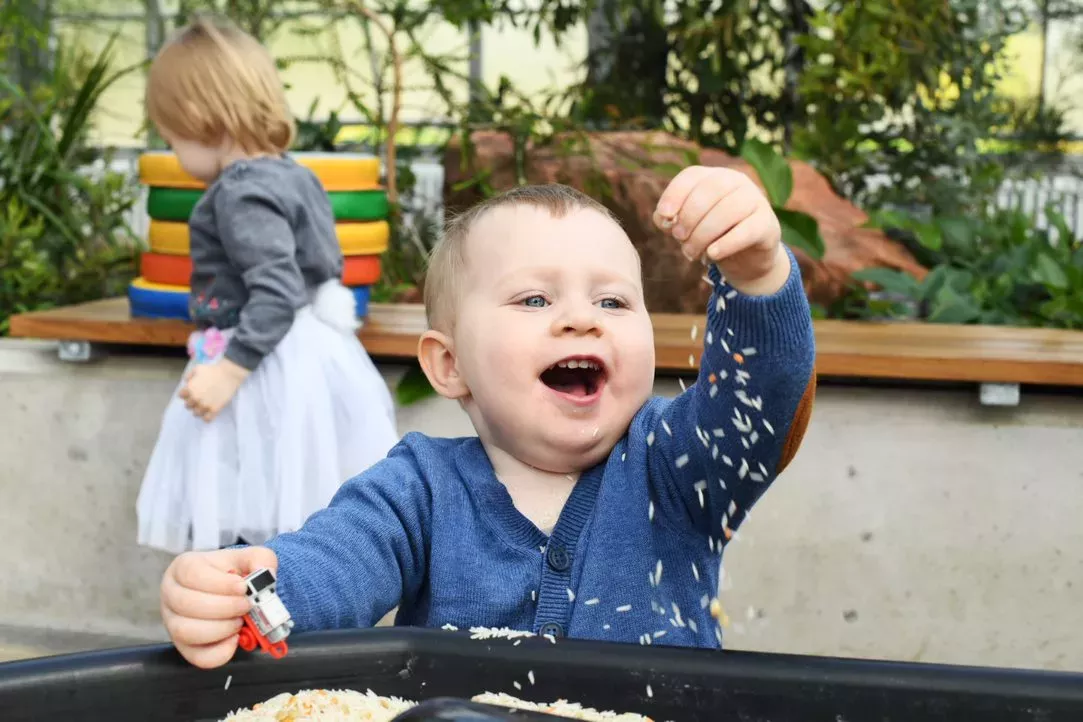10 May 2023
Kew is for everyone
Everyone should feel welcome and comfortable in our Gardens. Here’s how we’re making that happen.

We know that being in nature is important to wellbeing.
So, at Kew, we are committed to opening our beautiful spaces for the therapeutic benefit of everyone who needs it.
Read on to find out ten ways we are making Kew a place for everyone.
1. Tickets for £1
You can visit Kew Gardens and Wakehurst for £1 if you are in receipt of Universal Credit or Pension Credit.
The ticket allows you to book online or to walk up and pay £1 on the gate.
We’d like as many people as possible to be able to take advantage of this ticket price.
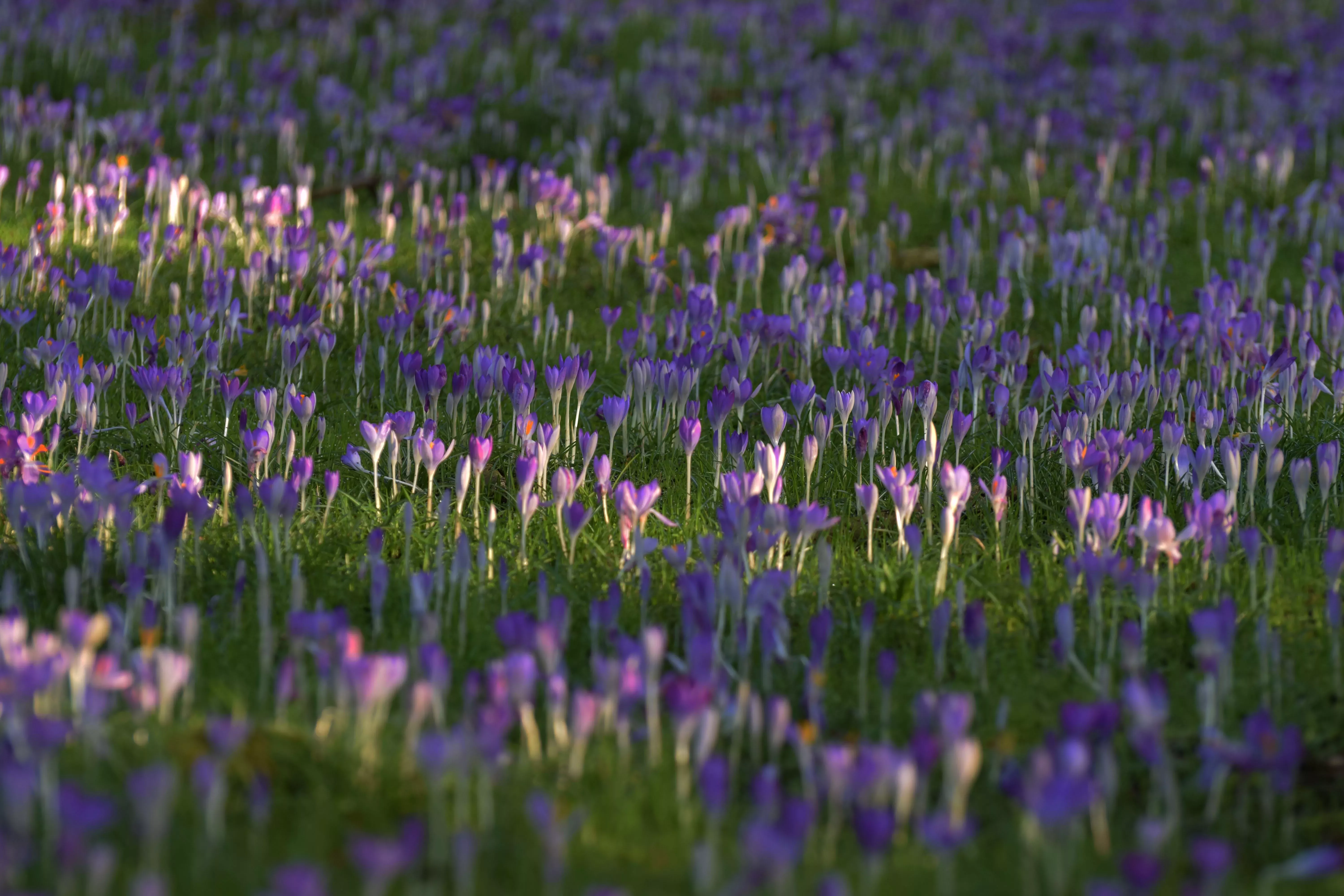
2. Free British Sign Language tours every month
Led by our specially-trained tour guides, these British Sign Language tours are for anyone who is D/deaf or has a hearing impairment.
The tours offer a fascinating overview of the Gardens, its history and important scientific work.
They’re free of charge and include entry to the Gardens. We also offer free, guided tours for people with sight loss and their carers.
Please email discovery@kew.org or phone 07341114533 to reserve your space.
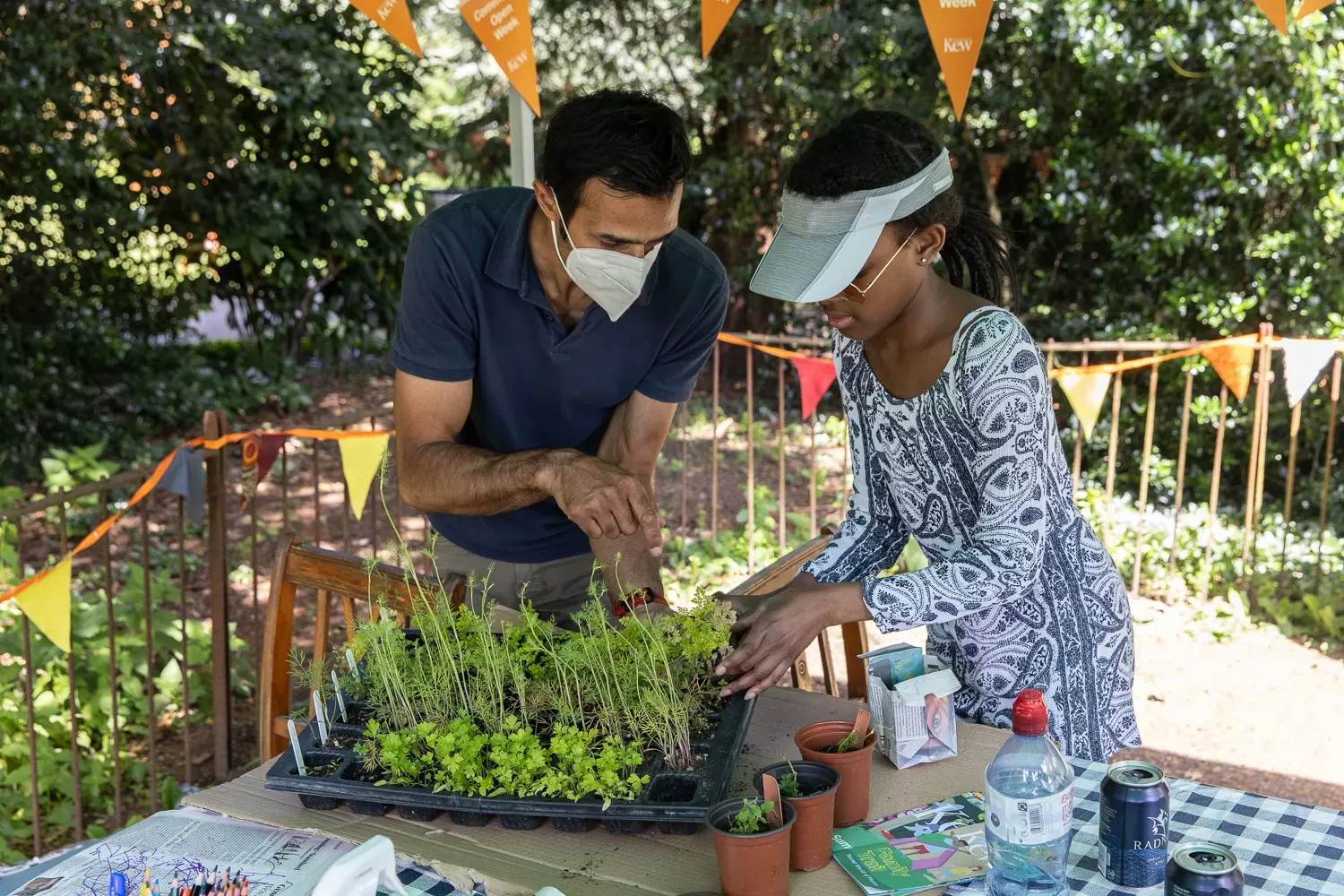
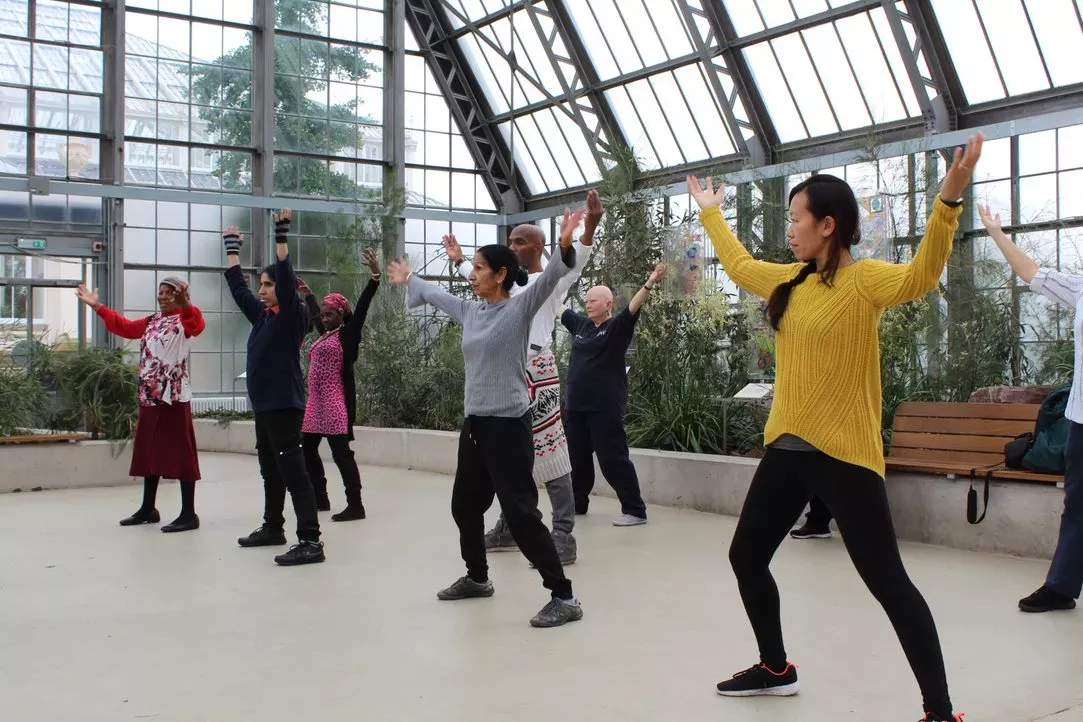
3. Fun and learning at Community Open Week
Every year we host an exciting line-up of free activities, especially for community groups.
Our guided walking tours include British Sign Language tours, dementia-friendly tours, mindfulness walks or sensory tours focusing on touch and smell, and you can also enjoy an exciting ride aboard our Kew Explorer train!
Sally Tillson from Salopian Gardens will teach us how to grow and cook our own edible flowers; we’ll do some tai chi, learn to extract DNA from strawberries and make a recycled shopping bag.
Round off your visit by joining in our games sessions with Kew science interns and in the Temperate House with Kew's Youth Explainers.
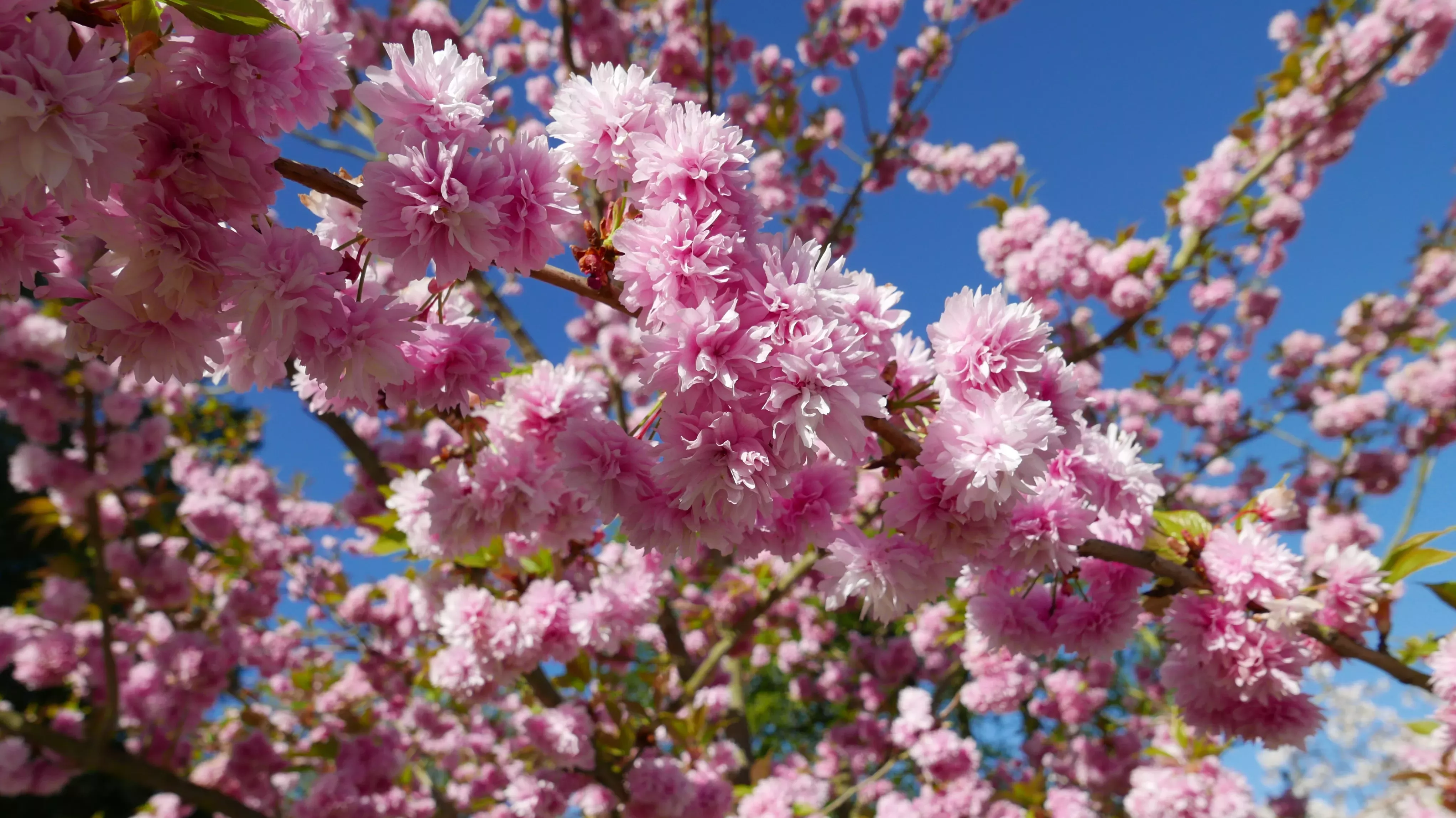
4. Wellbeing walks for people living with dementia
These free, relaxing walks, specially designed to be accessible for people living with dementia, give you the chance to chat whilst enjoying the sights of spring.
The walks include free entry to Kew Gardens. Support workers, friends or family are very welcome and will also receive free entry.
We’d love to welcome you. Please email discovery@kew.org or phone 07341114533 to reserve your space.
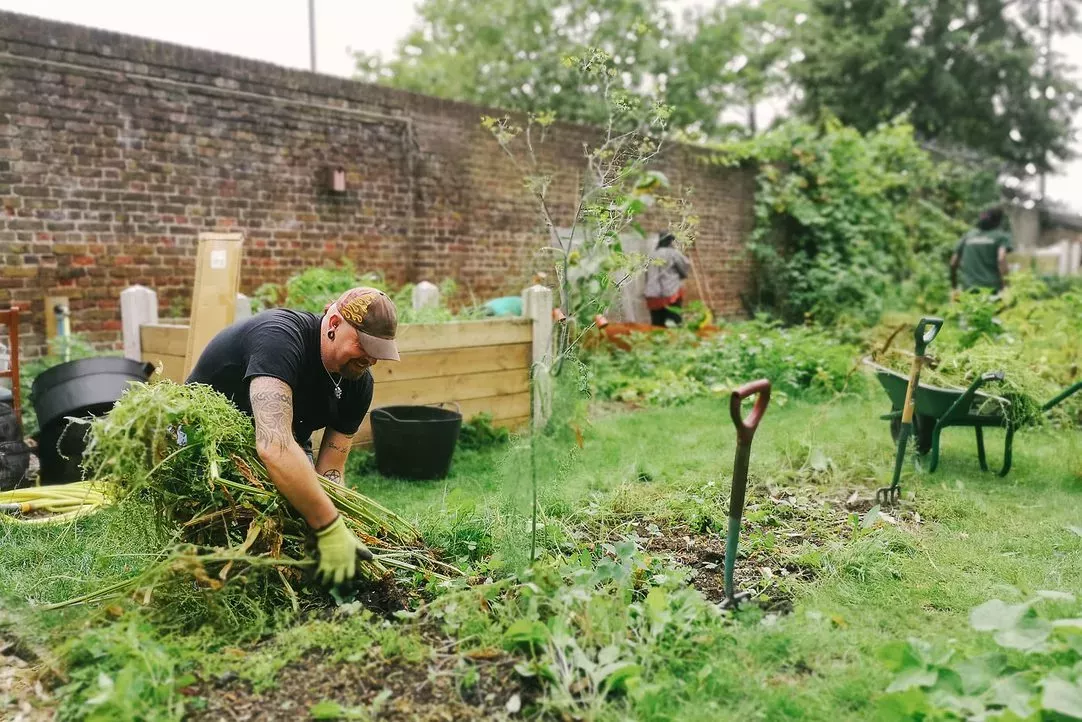
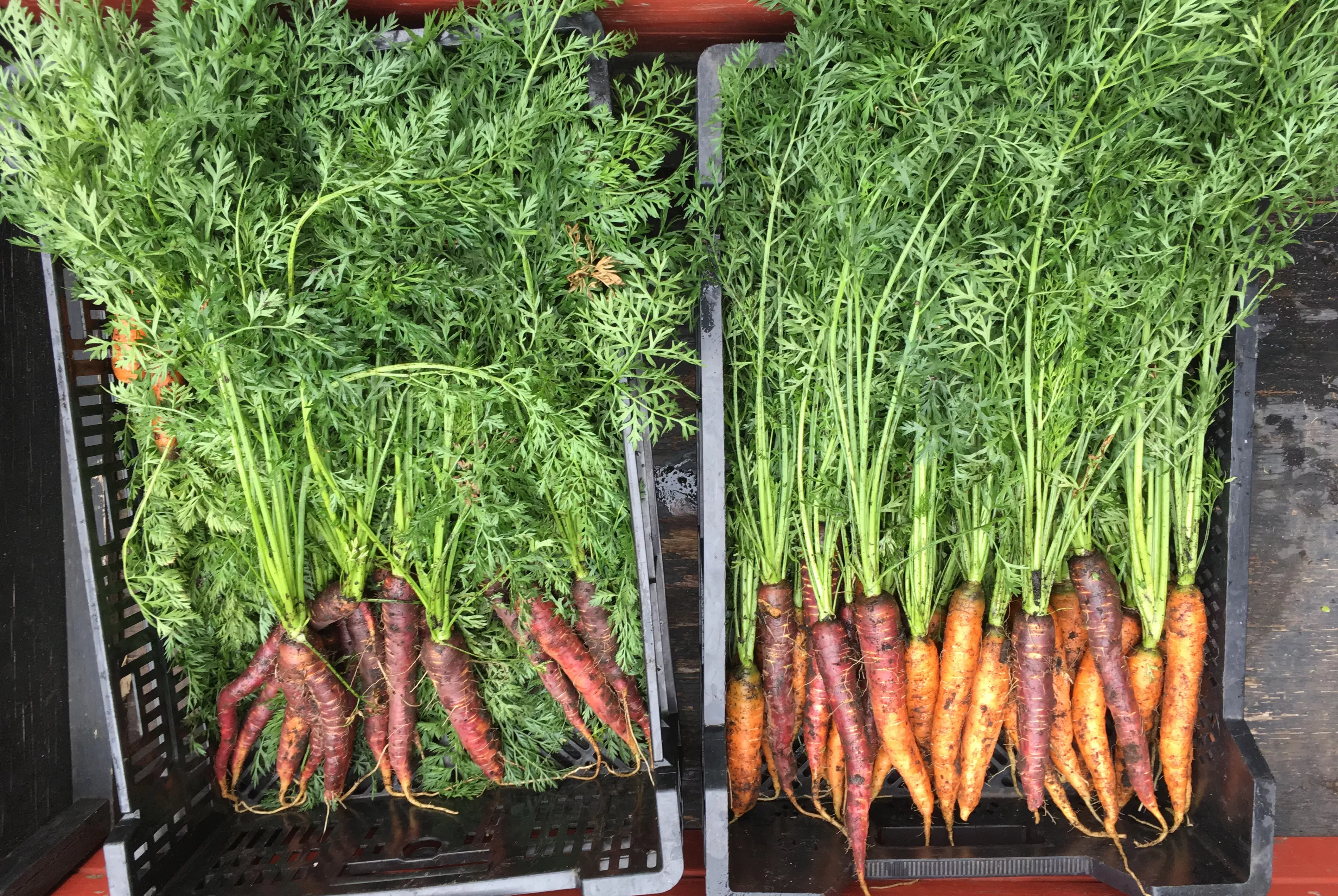
5. Inviting refugees and people struggling with homelessness to grow with us on our allotment
We work with refugees, asylum seekers, people in crisis and those struggling with homelessness.
Our community allotment at Kew Gardens is a welcoming and friendly place. Here, people take part in gardening sessions that are inclusive and open to every ability.
We also offer carpentry workshops for people in the process of mental health recovery.
Find out more about our Community Horticulture Learning Programme
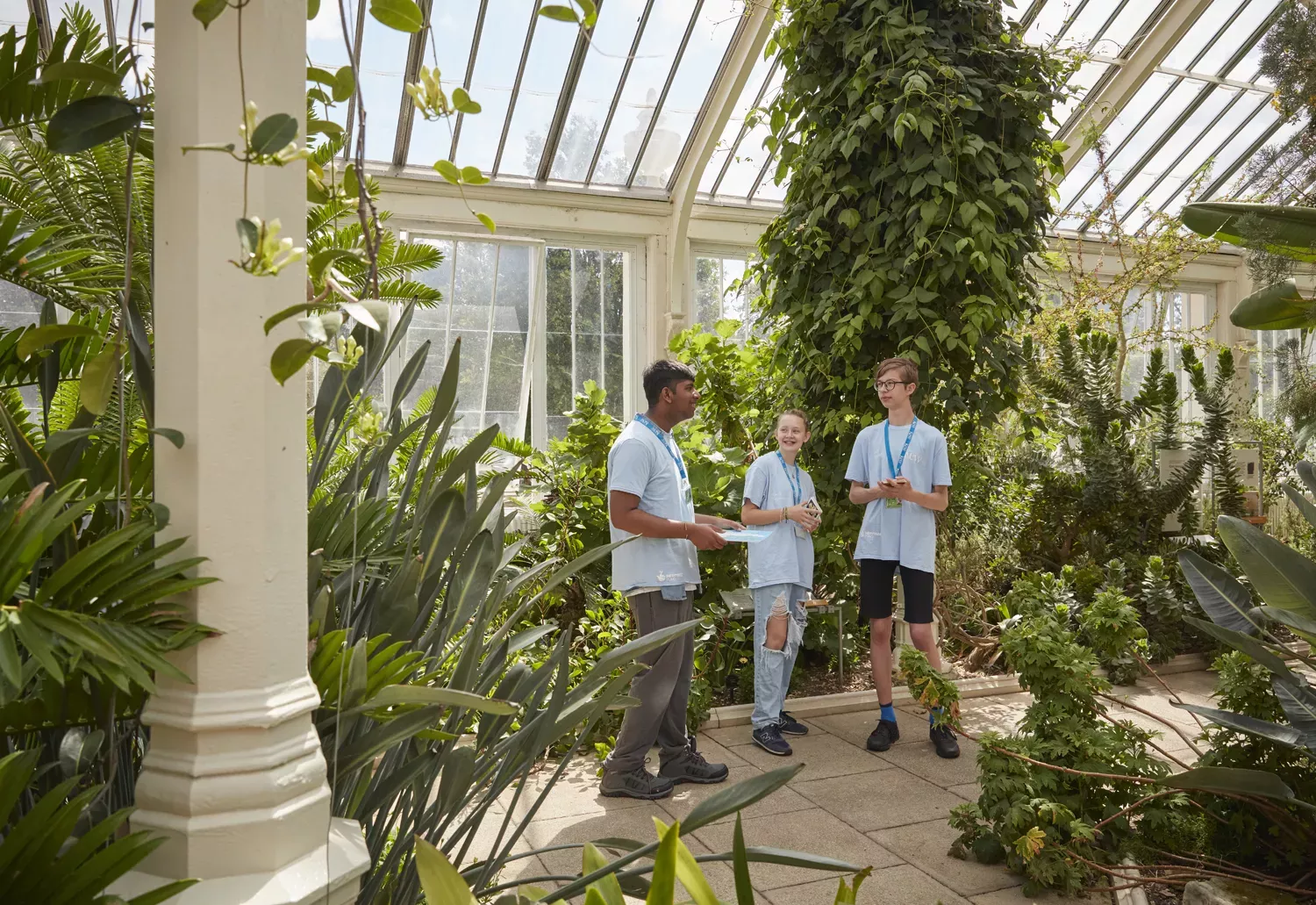
6. Training young people to talk to the public about nature
We invite young people to Kew to learn about plant science and conservation, and develop their confidence and communication skills, as part of our Youth Explainers programme.
After exploring behind the scenes in Kew's iconic Temperate House, our Youth Explainers create fun and innovative resources to engage the public in science and conservation.
Here our Youth Explainers talk about their love for Kew:
Earthwise, our summer programme for teenagers, is a chance for young people from all over London to take part in fieldwork, conduct their own research, explore the ‘living laboratories’ of Kew and Wakehurst and hear from Kew experts in biodiversity science and conservation. All for free!
Know a young person who’d like to get involved? Send them this link
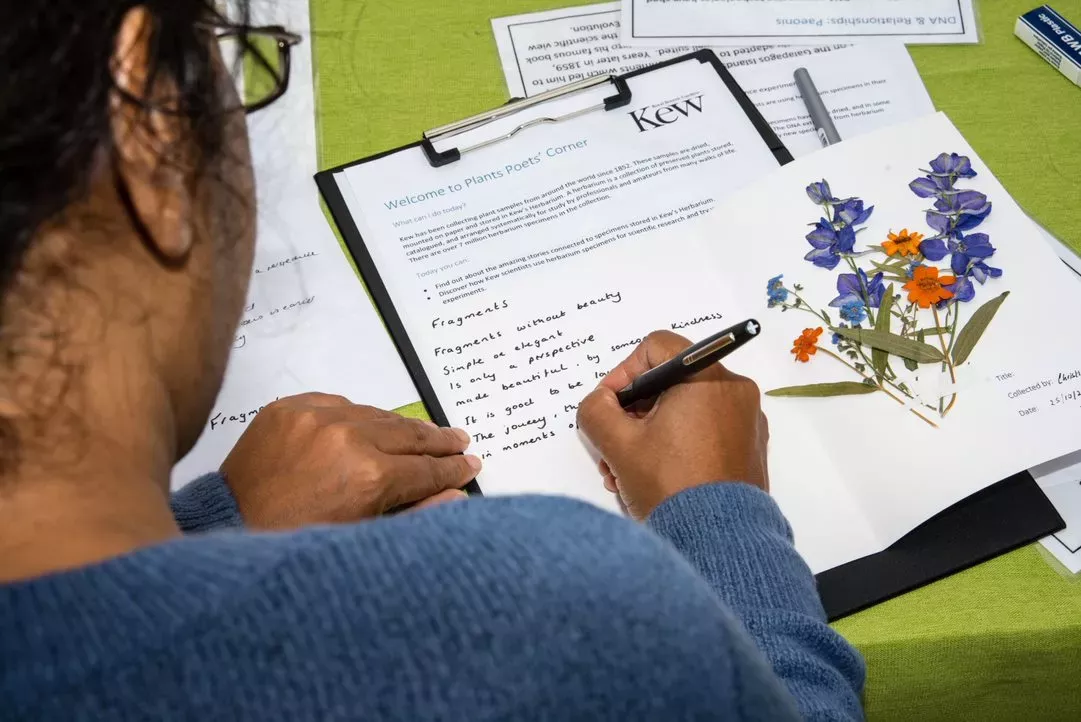
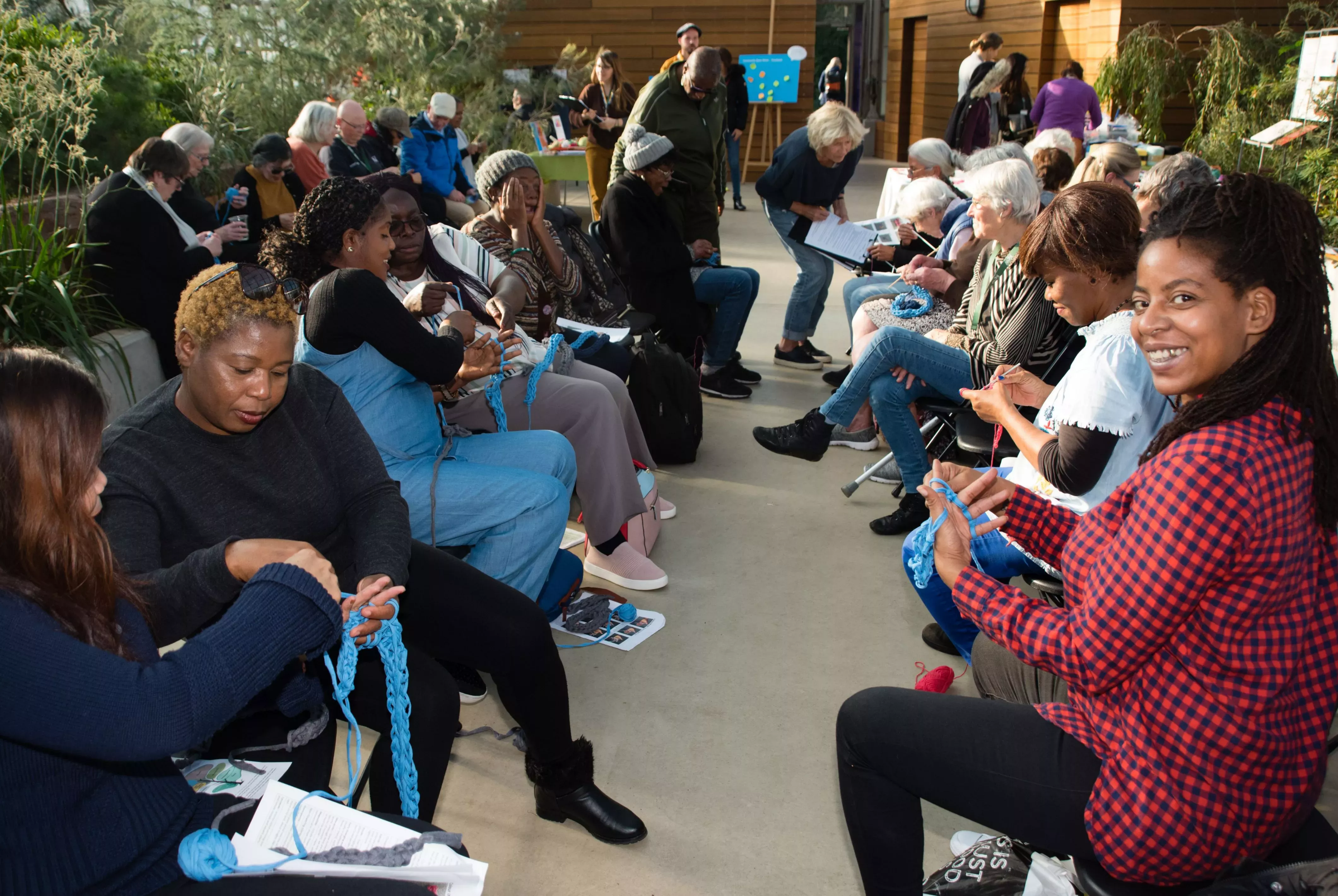
7. Our creative, nature-based workshops
We work with people who might otherwise face physical, psychological, or social barriers to visiting Kew.
We welcome participants to write poetry inspired by Kew, take part in our Knitting Nature workshops, or make music together.
Through these creative workshops, our participants learn more about Kew’s science, history and horticulture.
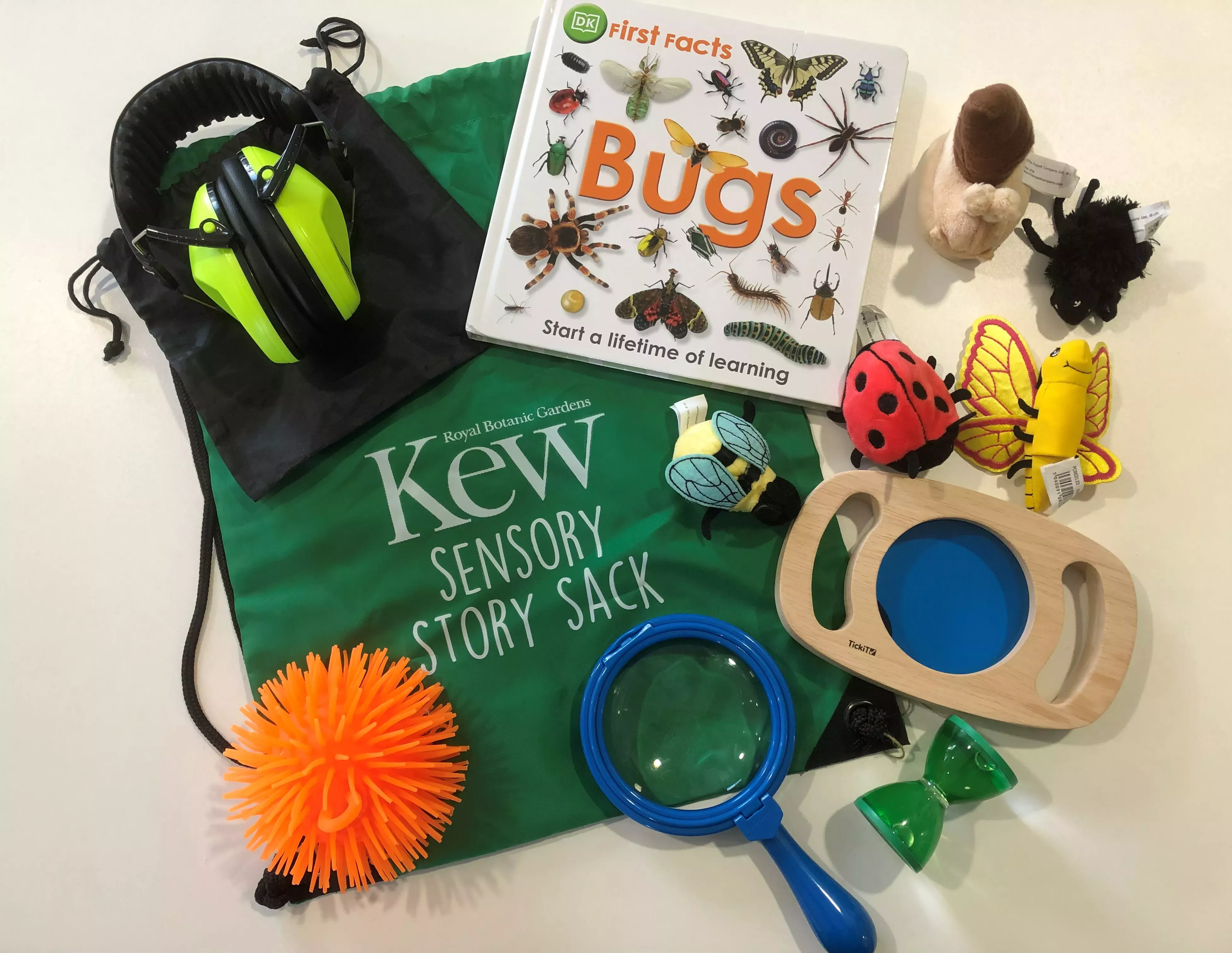
8. Activities for children with special educational needs or disabilities
We offer fun, engaging sessions involving music and gardening, picture exchange packs, and sensory tours for groups. Families can also get early access to events or enjoy a quiet session in our Children's Garden.
We also have fabulous sensory story sacks, designed to help engage and relax children during their visit. Resources include a stress ball, timer and ear defenders, as well as lots of enjoyable nature resources!
Children of all ages can take part in our activities designed to excite and inspire them about plants and the natural world.
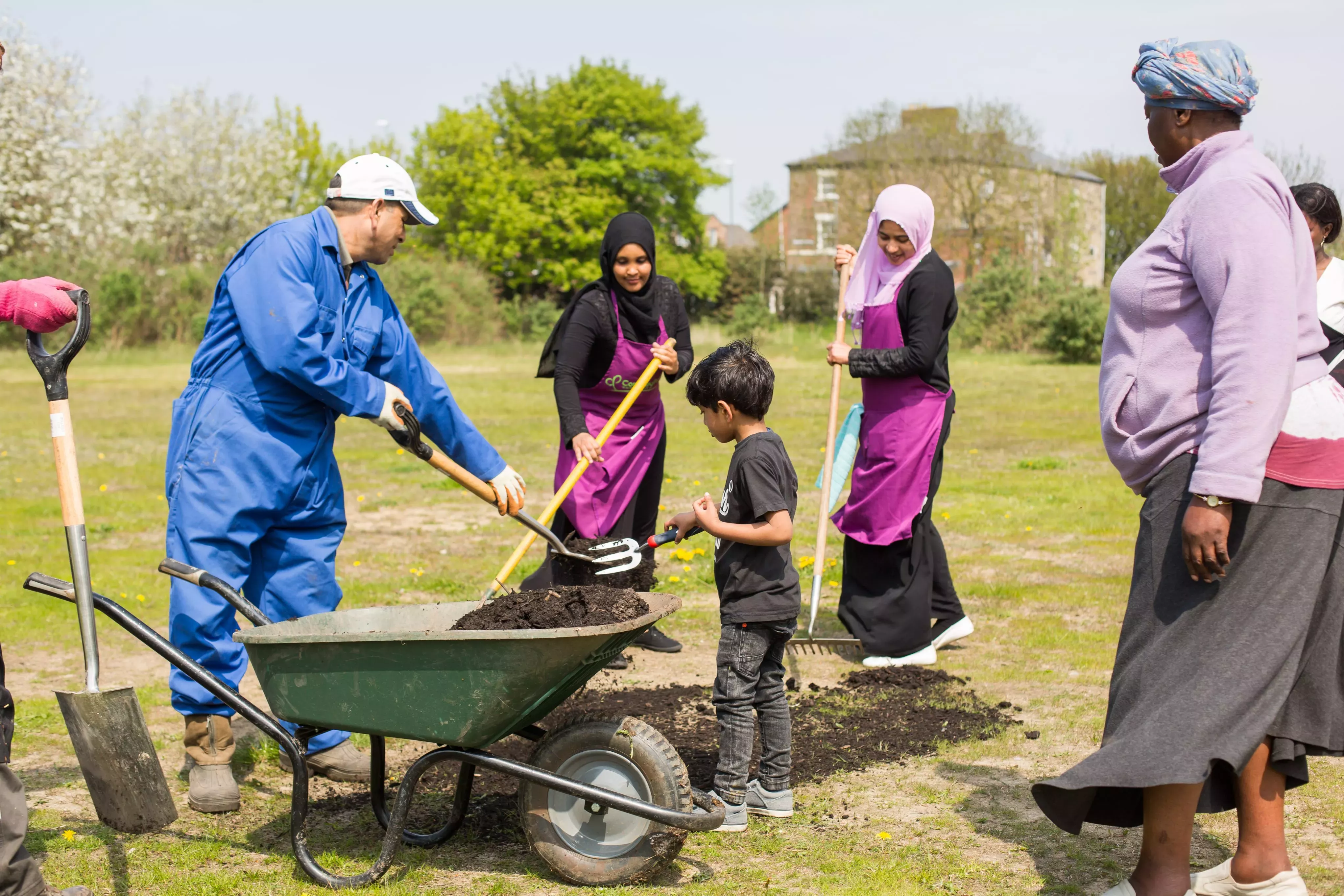
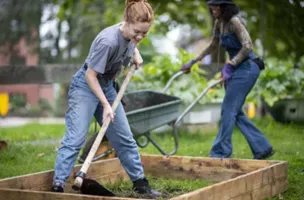
9. Kew in the community: growing native plants and fungi
Grow Wild inspires people living in urban and disadvantaged areas all over the UK to get together to grow, learn about nature, and transform urban spaces.
The outreach programme encourages people to grow UK-native plants and fungi through project grants, seed kits and fungus labs.
We focus on UK native wildflowers because their numbers are declining due to habitat loss yet they are excellent for pollinators and are such a joy to grow!
Over four million people have taken part in Grow Wild and we’ve won multiple awards, including the UK’s Best Environment Project in the National Lottery Awards!
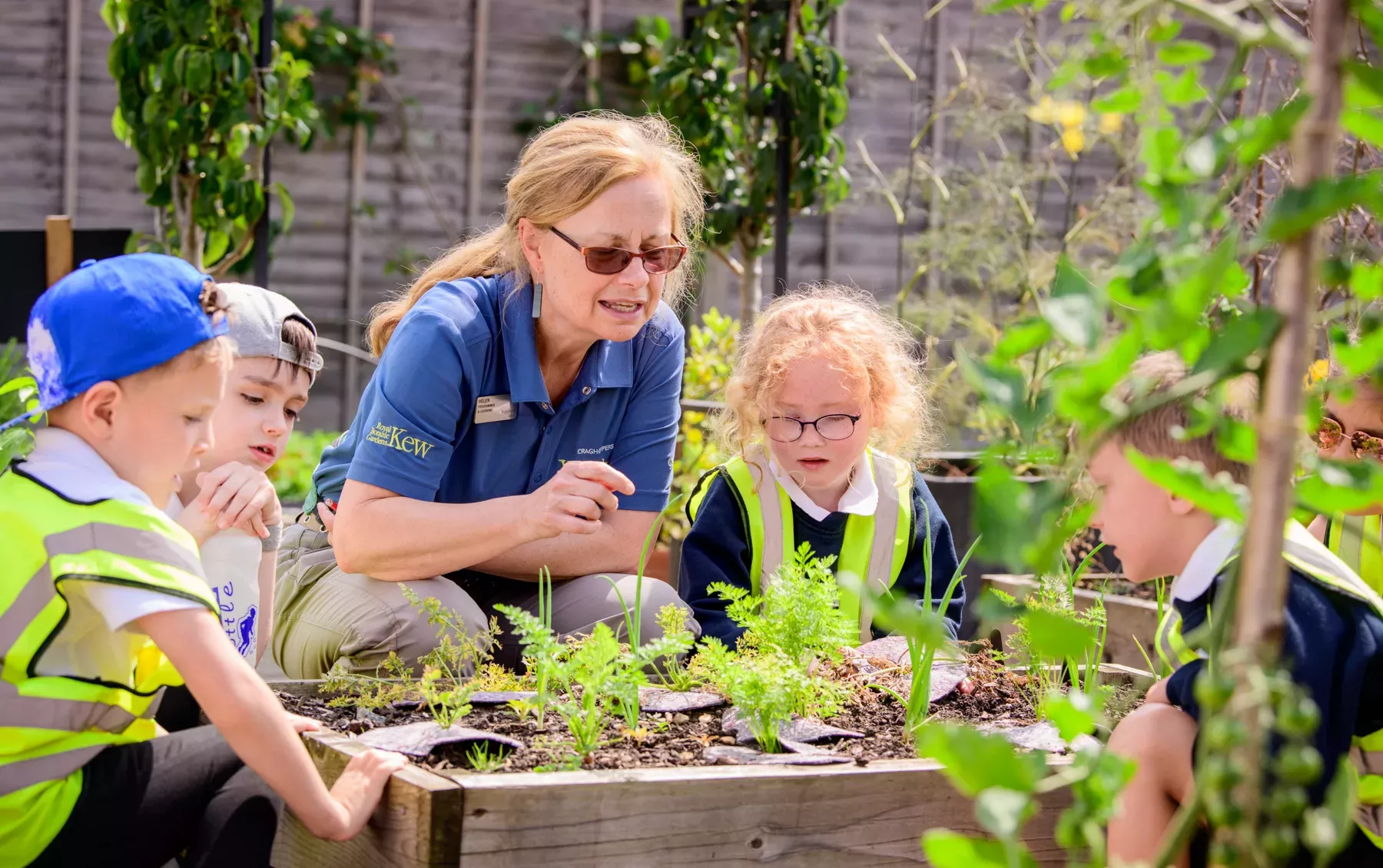
10. Turning the gardens into a classroom for children of every age
We offer hands-on education sessions for children visiting with their school.
Our sessions link directly to the school curriculum and introduce children to our scientific work. Kew’s teachers at both Kew Gardens and Wakehurst have a wealth of knowledge and experience.
We cater for different ages, abilities, learning needs and some languages.
We also offer teacher training and an incredible learning platform full of free resources and activities for pupils of all ages.
Sound exciting?
Spread the word about our walks, activities and programmes for all.
We look forward to welcoming you to Kew Gardens and Wakehurst soon!
